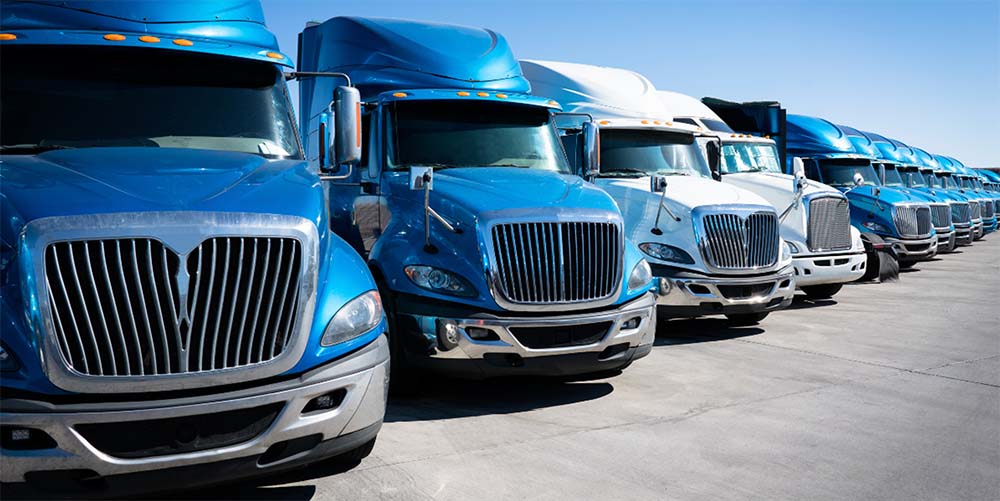
What is Freight Factoring and How Does it Work?
Freight factoring, also known as transportation factoring or trucking factoring, is a financial service designed specifically for trucking companies and freight brokers. In this guide, we’ll explore the benefits of freight factoring, how it works, and everything you need to know to get started.
Freight Factoring: The Basics
Freight factoring is a financial solution that has become increasingly popular in the trucking industry. It involves selling a trucking company’s accounts receivables, or invoices, to a factoring company at a discount for payment within a shorter time frame.
In simple terms, it is a process where a trucking company can get immediate payment for its outstanding invoices by selling them to a third-party factoring company. This helps trucking companies improve cash flow and manage their finances more effectively, which is especially important in an industry where cash flow can be unpredictable.
How Freight Factoring Works
The process of freight factoring is relatively straightforward. A trucking company delivers its load and generates an invoice for the service provided. The factoring company then purchases the invoice, typically paying the trucking company a percentage of the invoice amount upfront, with the remaining balance paid once the invoice is collected. This allows trucking companies to receive payment for their services quickly without having to wait for their customers to pay their invoices.
Additionally, factoring companies often take on the responsibility of collecting payments from customers, freeing up time and resources for trucking companies to focus on other aspects of their business.
Freight Factoring Step-by-Step
- Delivery of load: The carrier delivers the load to the customer and generates an invoice for the services rendered.
- Submission of documents: The carrier submits the invoice and other required documents to the factoring company, such as the bill of lading and proof of delivery.
- Verification: The factoring company verifies the invoice and the creditworthiness of the customer.
- Funding: The factoring company advances a percentage of the invoice amount, typically within 24 hours, to the carrier.
- Payment: The customer pays the factoring company directly for the invoice amount.
- Final settlement: The factoring company settles the remaining balance of the invoice with the carrier, less any fees and charges.

Freight factoring can help carriers improve their cash flow by providing quick access to funds while also reducing the administrative burden of managing accounts receivable.
Benefits of Freight Factoring for Trucking Companies
Freight factoring offers several benefits for trucking companies.
- It can help improve cash flow, allowing companies to pay their expenses and grow their business.
- It provides access to dynamic funding options, allowing companies to take on more loads and expand their operations.
- It reduces the accounting workload of trucking companies, as the factoring company takes on the responsibility of collecting payments from customers.
- Freight factoring can provide competitive advantages for trucking companies, particularly smaller or startup businesses, by providing more working capital and cash flow.
Overall, truck factoring is a valuable financial solution for trucking companies looking to manage their cash flow more effectively and grow their business.
Recourse vs. Non-Recourse Factoring
There are two types of factoring: recourse factoring and non-recourse factoring. Below, we’ll explain the differences.
Recourse factoring is a type of factoring where the business that sells its accounts receivable remains liable for any unpaid debts if the customer fails to pay. In other words, if the customer does not pay the invoice, the factor can demand payment from the business that sold the invoice.
Recourse factoring typically involves lower factoring fees since there is a lower risk for the factoring company. However, businesses need to be aware of the potential risk of having to buy back any loans that end up being uncollected.
Non-recourse factoring, on the other hand, is a type of factoring where the factor assumes the credit risk and liability of non-payment on a factored invoice. This means that if the customer fails to pay the invoice, the factor absorbs the credit risk and the business that sold the invoice is not liable for the unpaid debts.
Non-recourse factoring is often more expensive than recourse factoring due to the higher risk involved for the factor. However, this type of factoring can provide businesses with more financial security and peace of mind.
The choice between recourse and non-recourse factoring ultimately depends on the specific needs and circumstances of the business. Recourse factoring may be more suitable for companies with reliable customers and a lower risk of non-payment. Non-recourse factoring may be more ideal for companies with higher credit risks and a need for more financial security. Both types of factoring can provide businesses with consistent cash flow and help improve their financial stability.
DAL is Your Trusted Freight Partner
DAL is your trusted project logistics partner for all of your transportation needs. We provide reliable and cost-effective solutions to our customers, ensuring that their goods are delivered safely and on time. Our experienced team of professionals uses the latest technology to make sure that your shipments are handled with care and efficiency. With our wide range of services, you can rest assured that we will always find the best solution for you.
Contact our team to learn more about our factoring services.